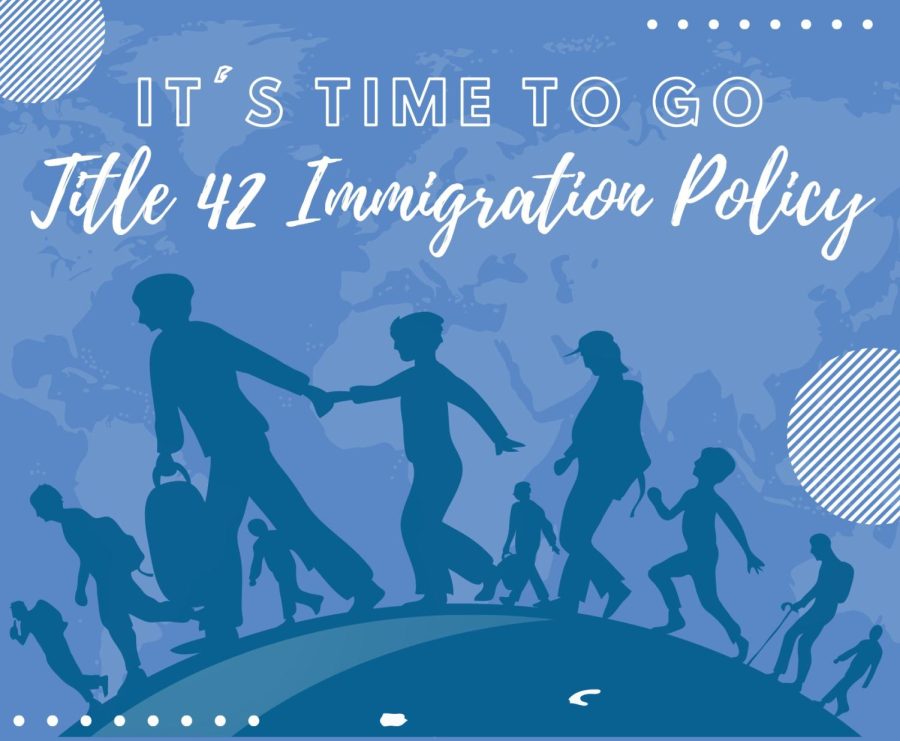It’s time Title 42’s immigration policy should go
The United States restricts immigrants’ access to the country because of COVID-19.
February 9, 2023
Title 42 Section 265 details a policy to expel asylum seekers without hearings if there is a disease like COVID-19. An asylum seeker is someone who has fled their home in search of safety and protection in another country.
“Title 42 was put in place because of COVID. The fear was we’d have too many people infected,” said History teacher Thomas Dalldorf.
Title 42 was reintroduced by the Centers for Disease Control and Prevention under the Trump Administration to stop the spread of COVID-19 in March 2020. However, it does not work as intended.
“The fact that we’re vaccinated, the fact that the numbers have been down, I think Title 42 should go,” said Dalldorf.
However, statistically, Title 42 does little to prevent COVID outbreaks within the United States. Studies show that even during the COVID outbreak, there is little relationship between Title 42’s implementation and increasing the severity of the pandemic.
The Supreme Court two months ago voted to keep Title 42 in a 5-4 vote as it controls migration. More than 9,000 immigrants from Mexico had entered the United States on three occasions out of 10 in December. Even though thousands of immigrants from Mexico enter the United States every day, the United States stops and deports thousands of immigrants too.
“It has always been very clear, which is that if you seek asylum because your life is being threatened, you should at least have a hearing,” said Dalldorf.
Although the United States should not employ an open immigration policy, officials still must comply with due process that constitutionally applies to all persons – including asylum seekers. By ignoring the legal procedures of review, migrants are deported within a few hours.
The Biden Administration has stated that they want to end Title 42. However, his actions conflict with what he stated: he recently expanded Title 42 to include other Latin American countries. If Title 42 does end, it means a major increase in immigrants from Mexico, Canada, and other countries who might not be able to support themselves, but it could save a lot of people from harm.
“It just means that more people are going to be held for longer periods until they get their hearing, which is difficult, some of these folks have legitimate concerns, and it would be nice to be able to protect them from death,” said Dalldorf.





